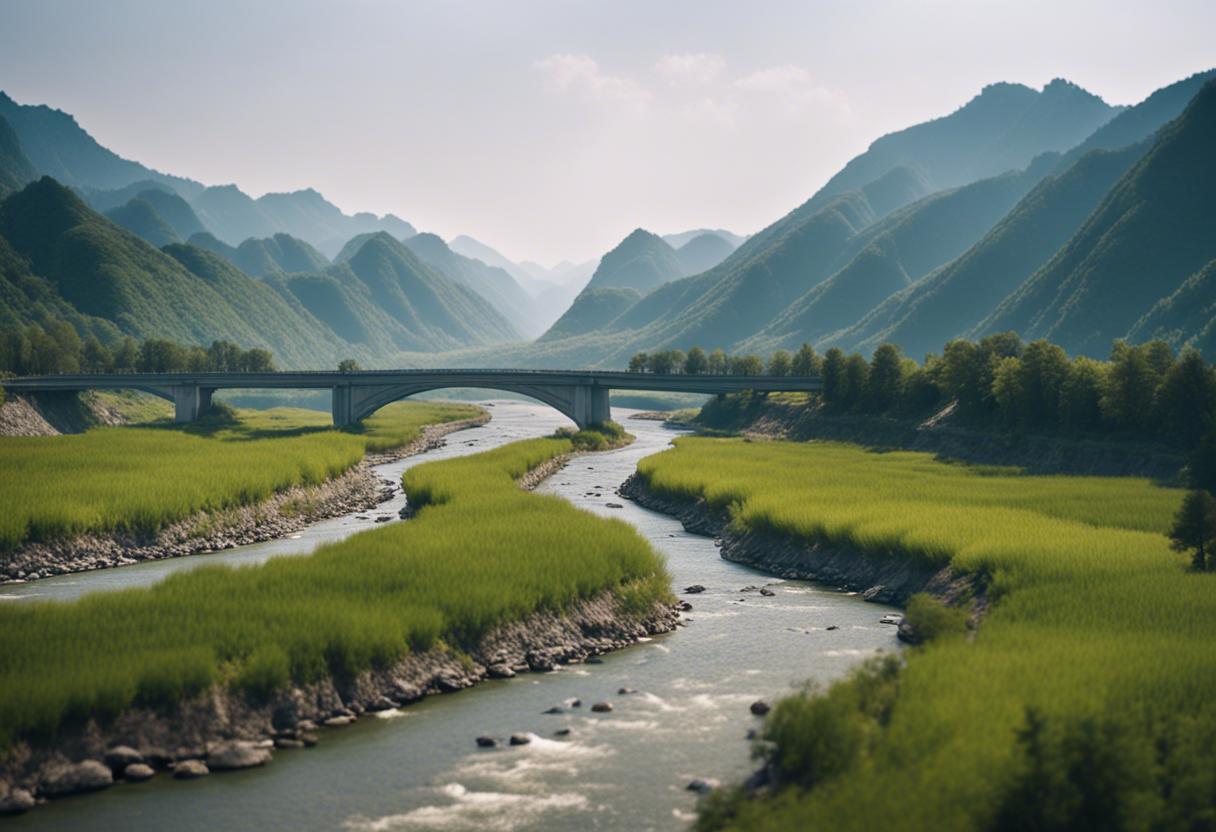Kim Jong-un, the leader of North Korea, has confirmed that the nation will not be seeking external assistance to tackle the aftermath of significant flooding near its Chinese border. He has directed officials to transfer thousands of residents who have been displaced to the capital city, Pyongyang, for superior care.
The reconstruction of homes and reinstatement of stability in flood-affected areas is expected to span a time period of approximately two to three months, according to Mr Kim. His government’s intentions are to house around 15,400 individuals that include mothers, children, senior citizens and disabled military personnel in facilities in Pyongyang during that span, as stated by North Korea’s official Korean Central News Agency (KCNA).
During a two-day journey to the town of Uiju situated in the northwestern area of North Korea, Mr Kim interacted with flood victims and initiated discussions on recovery strategies. KCNA lauded his visit, praising his “sacred leadership” and his “dedicated service to the people, marked by deep affection and an elevating spirit”.
Reports from state media revealed that immense rainfall towards the end of July resulted in roughly 4,100 homes, 7,410 acres of farm fields, and a large number of public structures, buildings, roads, and railway lines flooded in Sinuiju, a city in northwest North Korea, and the nearby town of Uiju. The nation has not disclosed data concerning flood-related casualties, but Mr Kim was cited blaming public officials for neglecting disaster prevention, causing unnecessary loss of life.
Mr Kim expressed gratitude, but rejected offers of aid from Russia and China—traditional allies—as well as from international agencies. Emphasising self-reliance, he stated that the nation has its own rehabilitation plans and will only seek assistance from other nations if required later. Notably, he had expressed a similar sentiment earlier when Russian president Vladimir Putin proposed support.
Although South Korea made gestures to provide aid resources, it is highly doubtful that their proposal will be welcomed by its competitor, North Korea. The current antagonism between these countries is particularly pronounced, due to North Korea’s increasing nuclear aspirations and South Korea’s burgeoning military partnerships with the US and Japan. Last year, North Korea had similarly declined aid from the South during a Covid-19 crisis.
In a recent trip to Uiju, Mr Kim reiterated the claim that South Korea had sensationalised the scale of the North’s flood damage and fatalities, denouncing it as a severe act of defamation and an egregious affront to his administration. Certain South Korean media outlets propose that the damage from the floods in North Korea is likely more severe than what has been admitted by their governmental outlets, predicting that the death toll could well exceed 1,000. – AP

